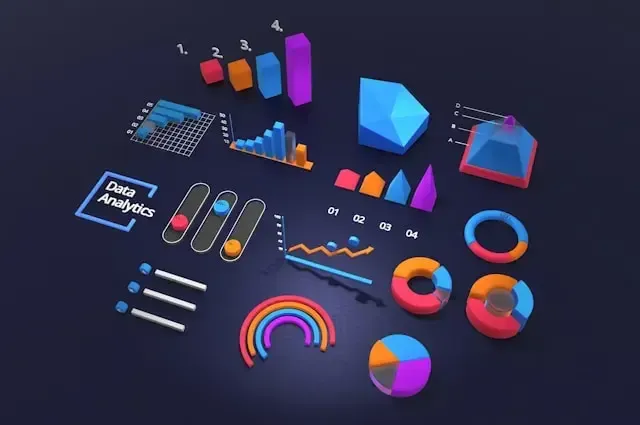In this comprehensive guide, we’ll explore everything you need to know to make an informed choice about whether leasing or buying a car is the best option for you.
When it comes to getting a new car, you have two main options: leasing or buying. Both choices come with their own set of benefits and drawbacks, and making the right decision depends on various factors, from your driving habits to your financial situation. In this comprehensive guide, we’ll explore everything you need to know to make an informed choice about whether leasing or buying a car is the best option for you.
Understanding Leasing and Buying
Before diving into the details, let’s start with a clear understanding of what leasing and buying a car involves.
-
What is Leasing?
Leasing a car is similar to renting. You pay for the use of the car over a set period, usually two to three years. At the end of the lease term, you have the option to return the car and lease a new one, or you might have the option to buy it if you’ve grown attached to it.
Leasing often comes with lower monthly payments compared to buying, and you generally get to drive a newer model with the latest features. However, leasing also means you don’t own the car at the end of the lease term, and you might face mileage limits and extra fees for excessive wear and tear.
-
What is Buying?
Buying a car means you either pay for it in full or finance it through a loan. Once you’ve completed your payments, the car is yours. You can keep it for as long as you want, and there are no mileage restrictions or penalties for wear and tear.
Buying typically requires a larger down payment and higher monthly payments compared to leasing. However, once the car is paid off, you no longer have any payments, and you can drive it as much as you like. You also have the freedom to customize or sell the car whenever you choose.
Key Factors to Consider
Choosing between leasing and buying a car involves evaluating several key factors. Let’s explore these in detail to help you make the best decision for your situation.
1. Driving Habits
One of the most important factors to consider is your driving habits. How much do you drive each month or year? If you’re someone who puts a lot of miles on your car, buying might be the better option.
Leasing contracts usually come with mileage limits, which can range from 10,000 to 15,000 miles per year. If you exceed these limits, you’ll likely have to pay extra fees for each additional mile. For high-mileage drivers, these fees can add up quickly and make leasing less cost-effective.
On the other hand, if you drive less frequently or have a predictable mileage pattern, leasing can be a great option. It allows you to enjoy a newer car with lower monthly payments and the opportunity to switch to a new model more often.
2. Budget and Monthly Payments
Your budget plays a crucial role in deciding whether to lease or buy a car. Leasing generally involves lower monthly payments compared to buying. This can be particularly appealing if you want to keep your monthly expenses manageable or if you prefer to allocate your budget toward other priorities.
However, keep in mind that leasing is an ongoing expense. At the end of each lease term, you’ll need to either lease a new car or buy one, which means you’re continuously making payments. If you prefer to eventually own your vehicle and avoid ongoing payments, buying might be a better choice.
3. Down Payment and Financing
When buying a car, you usually need to make a down payment, which can range from 10% to 20% of the car’s purchase price. This upfront cost can be substantial, but it helps reduce the amount you need to finance and lowers your monthly payments.
If you’re financing the car, you’ll also need to consider interest rates and loan terms. Your credit score can impact the interest rate you receive, which affects the total cost of the car over the life of the loan.
Leasing, on the other hand, often requires a lower down payment compared to buying. This can make it easier to get into a new car with less money upfront. However, the lower down payment does not mean you’re free from other costs. You might still need to pay for taxes, fees, and possibly a security deposit.
4. Ownership and Customization
Ownership is a significant factor to consider when deciding between leasing and buying. When you buy a car, it’s yours to keep. You can drive it for as long as you want and make any modifications you desire, such as adding custom features or changing the paint color.
Leasing, however, means you’re using the car for a set period but never actually own it. Most lease agreements prohibit modifications, so if you like to personalize your vehicle, buying might be the better option.
5. Long-Term Costs
Long-term costs are another important consideration. When you buy a car, you might face higher repair and maintenance costs as the vehicle ages. However, once the car is paid off, you won’t have any more monthly payments, which can save you money in the long run.
Leasing can sometimes come with fewer maintenance costs because leased cars are usually newer and covered by warranties. However, at the end of the lease, you might face extra charges for excessive wear and tear. Additionally, if you lease a new car every few years, you’re continually making payments and not building any equity.
6. Flexibility and Lifestyle
Consider your lifestyle and how flexible you need your car situation to be. If you like having the latest model with the newest technology, leasing allows you to drive a new car every few years. This can be appealing if you enjoy the thrill of driving new vehicles and want to avoid the hassles of selling an old car.
Buying offers more flexibility in terms of ownership. You can keep the car for as long as you want, and there’s no need to worry about returning it or facing penalties for excess mileage or wear and tear.
7. End-of-Term Options
Think about what you’ll want to do at the end of your car’s term. When leasing, you generally have a few options: return the car and lease a new one, purchase the car at its residual value, or simply walk away. Each option comes with its own set of considerations and potential costs.
Buying a car means you have complete control over what happens once you’ve paid it off. You can keep the car, sell it, or trade it in for a new one. This flexibility can be advantageous if you like to have control over your vehicle’s future.
8. Maintenance and Repairs
Maintenance and repair costs can vary depending on whether you lease or buy. Leased cars are typically under warranty for the duration of the lease, which means many repairs might be covered. This can provide peace of mind and lower out-of-pocket expenses for maintenance.
When you buy a car, you’re responsible for maintenance and repair costs once the warranty expires. However, if you maintain the car well, you might avoid major repair issues. Regular maintenance can extend the life of your car and help you avoid costly repairs down the road.
9. Tax Benefits and Incentives
In some cases, there might be tax benefits or incentives associated with leasing or buying a car. For example, business owners might be able to deduct lease payments as a business expense. Additionally, some manufacturers offer special leasing deals or financing incentives that can lower your overall cost.
It’s worth exploring any available incentives or tax benefits before making a decision. These can impact the overall cost of leasing or buying and might influence your choice.
10. The Impact of Your Credit Score
Your credit score can affect both leasing and buying a car. A higher credit score can help you secure better financing terms, such as lower interest rates on a car loan. It can also improve your chances of getting approved for a lease with favorable terms.
If you have a lower credit score, you might face higher interest rates or less favorable lease terms. It’s important to check your credit score before you start shopping for a car and consider ways to improve it if necessary.
11. Resale Value and Equity
When buying a car, it’s important to consider its resale value and the equity you’ll build. Cars depreciate over time, but some models retain their value better than others. Researching a car’s resale value can help you make a more informed decision about its long-term worth.
With leasing, you don’t have to worry about resale value because you’re returning the car at the end of the lease term. However, you should be aware of any potential charges for excess mileage or wear and tear.
12. The Role of Technology
Technology is changing the way we think about leasing and buying cars. New advancements, such as electric vehicles and autonomous driving features, can influence your decision. For example, if you’re interested in the latest technology and prefer to drive a new car with cutting-edge features, leasing might be a good fit.
Buying allows you to keep a car for longer and potentially benefit from technological advancements as they become available. If you prefer to wait until a car’s technology has been tested and proven, buying might be a better choice.
13. Family and Lifestyle Considerations
Consider how your car choice fits into your family and lifestyle. If you have a growing family or need a vehicle with specific features, such as extra cargo space or advanced safety technology, make sure to factor these needs into your decision.
Leasing can be a good option if you frequently change cars to suit your family’s evolving needs. Buying might be better if you want a vehicle that can grow with your family and serve your needs for many years.
14. The Emotional Aspect
Sometimes, the decision to lease or buy can come down to personal preference and emotional factors. Do you love the idea of driving a brand-new car every few years, or do you prefer the satisfaction of owning a car outright? Think about what makes you happiest and what aligns with your long-term goals.
15. Practical Tips for Making Your Decision
To make your decision easier, start by researching different car models, lease deals, and financing options to understand what’s available. Calculate the total costs of both leasing and buying, including down payments, monthly payments, maintenance, and any end-of-term fees. Consider your driving habits, budget, and long-term plans to see which option suits you best. If you’re uncertain about the financial aspects, consulting a financial advisor can provide valuable guidance.
Conclusion
Choosing between leasing and buying a car is a significant decision that depends on a variety of factors, including your driving habits, budget, and personal preferences. By carefully considering these factors and evaluating your options, you can make a choice that fits your lifestyle and financial situation.
Whether you choose to lease or buy, the most important thing is to find a vehicle that meets your needs and brings you joy. Take the time to weigh your options and make an informed decision, and you’ll be well on your way to enjoying your new car.
Happy car shopping!


























